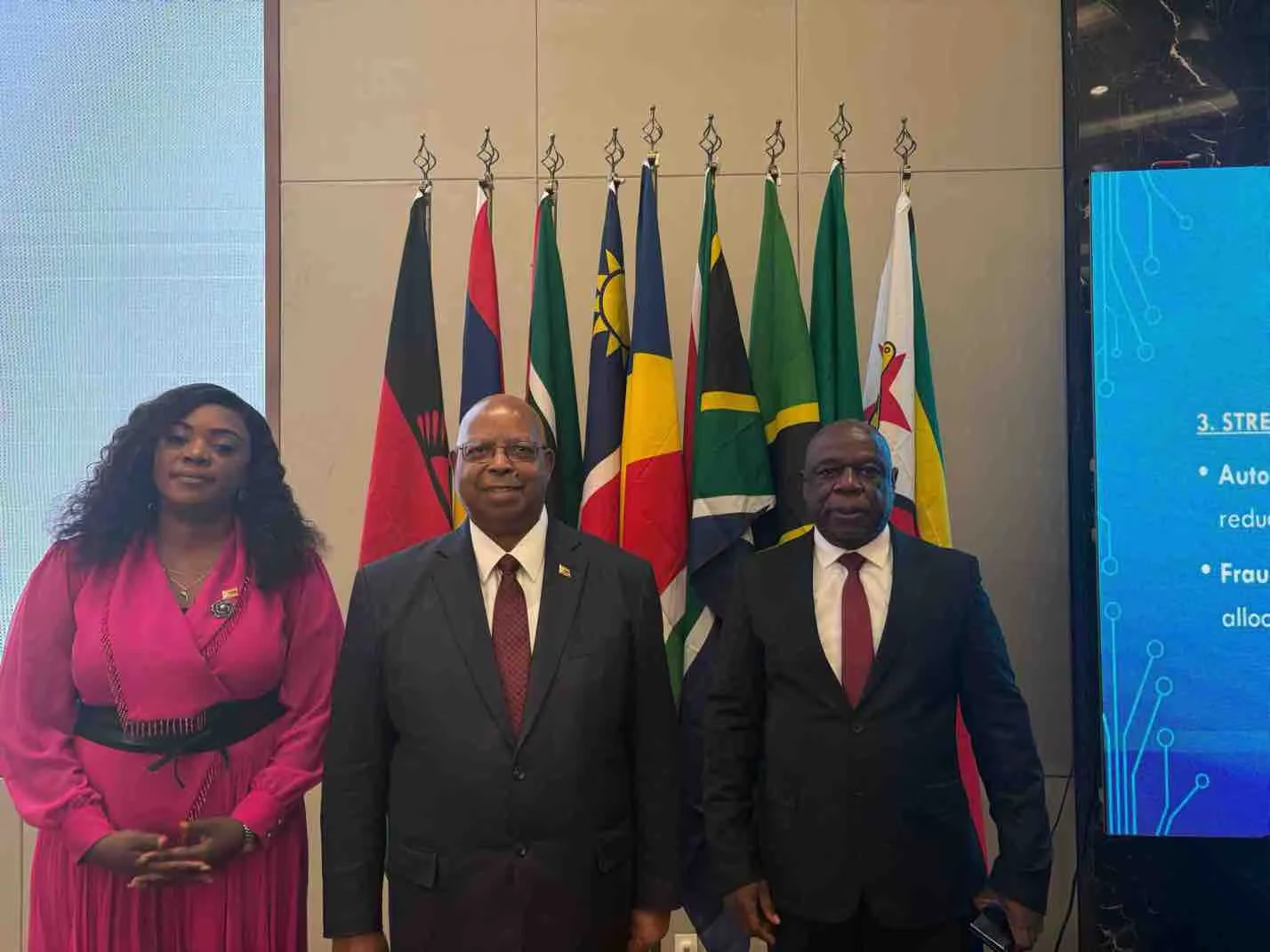
Harnessing Artificial Intelligence (AI) for effective and efficient parliamentary processes took centre stage at a forward-thinking mini-symposium convened on 22 May 2025 at Zimbabwe’s new Parliament Building in Mt Hampden. The symposium, held ahead of the 57th SADC Parliamentary Forum (SADC PF) Plenary Assembly, brought together legislators, experts, and technocrats to explore AI’s transformative potential in legislative governance. In a landscape where technology is rewriting the norms of engagement, participation, transparency, and accountability, the conversation could not have been timelier.
Speaker of Parliament Hon. Adv. Jacob Francis Nzwidamilimo Mudenda’s keynote address served as a call to action for parliaments across the SADC region to modernise their systems in alignment with global technological trends. Framing AI as a product of human intellect birthed in 1956 by John McCarthy, Hon. Mudenda challenged lawmakers to stop treating AI as a futuristic concept and instead embrace it as a necessary tool to redefine legislative operations today. He offered a powerful analysis of innovation, describing it not merely as technological adoption, but as the systematic implementation of improved services, products, and processes to deliver greater value, both to citizens and institutions. His remarks transcended the theoretical, as he anchored AI in the context of the African Union’s Digital Transformation Strategy, the Data Policy Framework, and the Malabo Convention, documents that collectively advocate for a unified, secure, and ethically sound digital ecosystem across the continent.
What emerged from Hon. Mudenda’s address was a vision where AI is not only used for internal efficiency but as a mechanism to deepen democracy. He stressed the importance of public participation, as mandated in Section 141 of the Constitution of Zimbabwe, and saw in AI a powerful ally in amplifying citizen voices, particularly through interactive platforms, natural language Chatbots, and intelligent feedback systems. This vision also included enhanced parliamentary oversight powered by AI analytics, allowing committees to track budgetary execution, monitor project implementation, and flag inconsistencies in real time. Such tools, he argued, would turn Parliament into a responsive institution capable of preempting crises rather than reacting to them.
Crucially, Speaker Mudenda proposed a comprehensive AI Needs Assessment as the cornerstone of Parliament’s transformation. Far from adopting a haphazard tech-first approach, this framework seeks to map institutional readiness, evaluate infrastructure, interrogate data availability, and explore governance systems that would regulate ethical AI use. By doing so, Parliament would avoid the trap of importing digital solutions that are incompatible with its social, political, and legal context.
Another key component of Hon. Mudenda’s vision was human capital development. He made a compelling case for universities, polytechnics, and research institutes to become co-creators of Zimbabwe’s AI future. AI solutions, he said, must not be outsourced from global conglomerates alone but developed in collaboration with local experts who understand the nuances of Zimbabwean society. Through strategic partnerships, Parliament hopes to pioneer innovations like AI-enhanced Hansard transcription systems, MP attendance trackers, and multilingual Chatbots that deliver legislative updates to diverse citizens, including those in remote rural communities.
The broader implication of such a transformation goes beyond Zimbabwe’s borders. The SADC PF has often faced criticism for being reactive in adopting modern parliamentary practices. Yet with Zimbabwe taking the lead, the region now has a blueprint for how legislative institutions can transition from analogue to digital. Speaker Mudenda’s references to other global parliaments, including Brazil’s AI-powered citizen interface, Estonia’s digital bill tracking, and India’s automated recordkeeping, suggest that Zimbabwe does not aim to copy these systems wholesale, but to contextualise best practices and implement them incrementally and strategically.
Nevertheless, the path to digital transformation is not without its perils. Hon. Mudenda offered a sober reflection on the ethical and geopolitical challenges that AI poses. From data sovereignty and algorithmic bias to cyber insecurity and dependency on Western-trained models, he warned that technology, if not properly localised, could undermine national integrity and democracy itself. Notably, he cited the Inter-Parliamentary Union (IPU)’s 2024 Resolution on AI, which mandates parliaments to lead the legislative and normative agenda around digital innovation. By aligning with this resolution, Zimbabwe’s Parliament is asserting its role not only as a consumer of technology but as a regulator and thought leader in the AI discourse.
This approach signals a paradigmatic shift in governance philosophy, from bureaucracy-heavy systems to agile, citizen-centric governance models that leverage data, speed, and precision. It also symbolises a generational shift in how leadership understands public service. The digital parliament envisioned by Speaker Mudenda is one that does not wait for civil society or media to hold it accountable. Instead, it uses AI to self-monitor, adapt, and innovate continuously. This type of institutional culture, once entrenched, could radically transform public trust and enhance policy outcomes across sectors such as health, education, agriculture, and infrastructure.
As the curtain rises on the 57th SADC PF Plenary Assembly, Zimbabwe’s bold step in hosting an AI symposium offers more than a platform for dialogue, it presents a model for sustainable institutional reform. With careful implementation, ethical guardrails, and local capacity development, AI could become the bridge that connects legislative intent to developmental impact. What remains is for parliaments across Africa to rise to the moment, shedding inertia and embracing the digital destiny that beckons.
Indeed, the future of law-making, oversight, and citizen representation now depends not only on political will but on how effectively artificial intelligence is woven into the DNA of parliamentary work. And with Parliament of Zimbabwe setting the pace, the region may very well be witnessing the beginning of a legislative renaissance powered by intelligent machines and visionary leadership.




